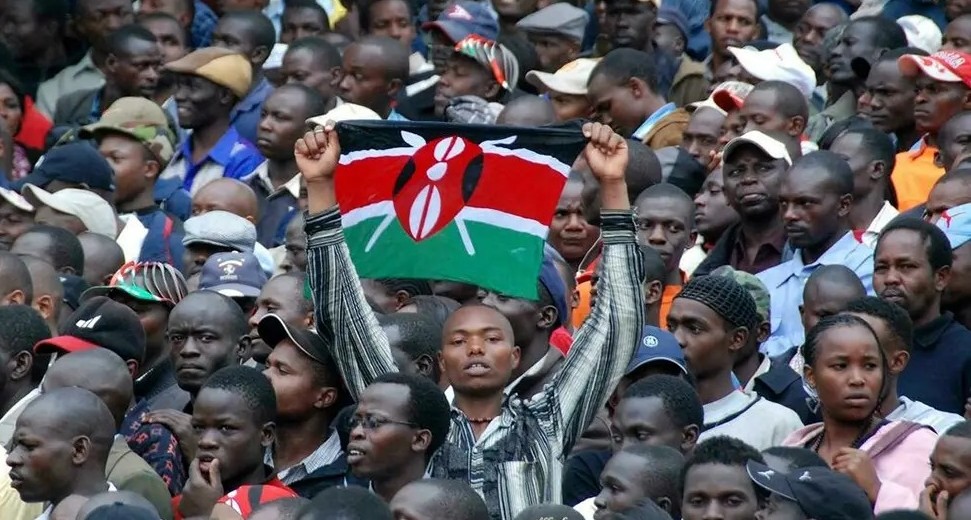Kenya is a land of diversity, contrasts and unbounded potential. Today she stands at a critical juncture in its history even as we celebrate our vibrant mosaic of cultures, languages and ethnicities. Ideally, I dream of a Kenya that honours its history, upholds shared values and guides its citizens toward collective greatness. I guess that is the Kenya one Sundeep Sharma imagined when he wrote about why we ought to find our own soul as a nation.
Instead of prioritising political bickering, Kenyans should focus a little more on shaping her identity as a leading light in Africa. We will emerge better and brighter as a people if we transcend ethnic boundaries and insist on building a unifying framework based on good governance.
The ideal Kenya would be a nation where unity prevails over division, where individuals are bound together not by tribal or ethnic identities but by a common set of beliefs and aspirations. It would be a country where every Kenyan, regardless of their background, can envision themselves as part of a national project—a project that transcends political affiliations and cultural identities.
One of the most pressing issues facing Kenya today is the deep-seated divisions driven by a culture of politically motivated regionalism and promoted by dim-sighted functionaries. Such is what undermines national solidarity, often resulting in needless strife that ends up destroying our soul as a nation.
As we pursue national unity, we should not mistake it for uniformity. A united Kenya should embrace diversity, with all its cultures becoming strengths not barriers. Unity would mean creating a national identity that celebrates our diversity as a fortune not a curse.
An ideal Kenya would be one where every citizen has access to opportunity, regardless of his or her background. This opportunity should manifest in education, employment, entrepreneurship, healthcare and economic freedom. That is why Kenya Kwanza’s Bottom-Up Economic Transformation Agenda makes perfect sense. For too long, Kenya has been plagued by the exclusion of large segments of society from the economic mainstream. Marginalised communities, particularly in rural areas, have for long faced barriers to upward mobility, mainly due to limited access to education, infrastructure and financial resources.
An ideal Kenya should prioritise equal opportunities for all citizens, fostering an environment where talent, hard work and creativity are properly rewarded. A Kenya that provides opportunity would cultivate an environment in which youth are equipped with the skills and resources to innovate and contribute meaningfully to the country’s growth.
The vision of opportunity is exemplified by the “American Dream,” which promises that anyone, regardless of their socio-economic background, can achieve success through hard work and determination. In Kenya, this spirit could be embodied in a national strategy that emphasizes job creation, entrepreneurship and skill-building initiatives, particularly in rural areas and among disadvantaged groups. Programmes aimed at empowering women and youth, who are often left out of the country’s economic mainstream, are critical in realising this vision.
While unity is a core principle, a well-defined Kenya should also recognise and respect the diverse identities that make up our country. From the Kikuyu to the Maasai, the Luhya to the Somali, Kenya’s ethnic and cultural variety is not something to be minimised but celebrated. This respect for diversity can become a source of national strength, providing Kenya with a rich, multi-layered identity that offers endless possibilities for growth and innovation.
Kenya’s national anima should build on our historic ideals of multiculturalism and inclusivity. The post-independence national motto, “Harambee” (Swahili for “let’s pull together”), should serve as a guiding principle that encourages every Kenyan to contribute to the collective good, while still honouring our unique heritage.
At the heart of an ideal Kenya is the spirit of service. Leaders and citizens alike must recognise their responsibility to others and the nation. This spirit should place Kenya above personal interests. The concept of service is integral to Kenya’s history—particularly during the struggle for independence, when national heroes like Dedan Kimathi, Tom Mboya, and Pio Gama Pinto sacrificed for the greater good of the country. They exemplified the spirit of selflessness and dedication to the collective future of Kenya that we should protect and propagate.
For modern Kenya, cultivating a spirit of service would mean fostering ethical leadership, encouraging civic engagement and strengthening national institutions to serve the public good.
The ideal Kenya, with a well-defined soul, is not a distant dream but an achievable goal, a goal rooted in the values of unity, justice, opportunity and respect for diversity and service.
Adhyambo is a knowledge management consultant running her own Nakuru-based firm.

